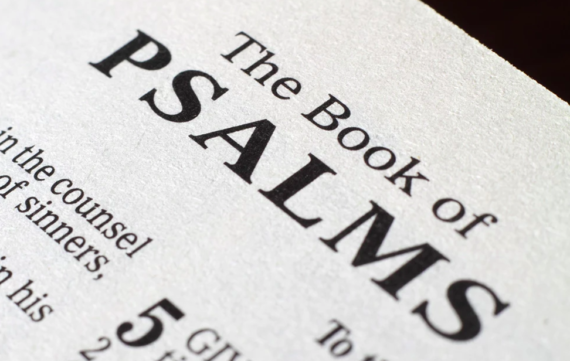Psalm 15
This is an unusual psalm. It is not a lament, or any of the more common styles of psalm. It is an instructional psalm based on the common practise at many sanctuaries in the ancient world. A worshipper would approach the place of worship and ask the requirements for entering and worshipping. The response at a pagan place of worship would, presumably, have involved bringing the correct sacrifices. The response here emphasises a changed life rather than ceremonial requirements.
Actions, Thoughts, and Words
The response touches upon actions, thoughts, and words. The one who would dwell with God must do what is right. “He who walks blamelessly and does what is right…(2a). This is the view throughout scripture. One must do right to be right. As the proverb says, “Even a child makes himself known by his acts, by whether his conduct is pure and upright” (Pr 20:11). Or as James says, “Show me your faith apart from your works, and I will show you my faith by my works” (James 2:18).




But to do right, one must think right. The one who would dwell with God must think true thoughts. The one who would approach God properly “speaks truth in his heart” (2b). If our inward thoughts are wrong, our actions might hide the wrong thinking for a short time, but in the long run what is inside will come out. That is why Paul told the Philippians, “Finally, brothers, whatever is true, whatever is honourable, whatever is just, whatever is pure, whatever is lovely, whatever is commendable, if there is any excellence, if there is anything worthy of praise, think about these things” (Phil 4:8).
The one who would dwell with God must also speak purely. As verse three says, “who does not slander with his tongue and does no evil to his neighbour, nor takes up a reproach against his friend” (3). Again, we find that the scriptures consistently point to our speech as a reliable indication of the content of our character. It is not the food that goes into our mouths that defiles, but the words that come out of our mouths that indicate the state of our hearts (Mt 15:18, see also Eph 4:25-29 and James 3:9-12).
Relationship with Others
The response emphasises our relationship with others. We are to be fair to others (3). Our society has learned to be fairly good about this, except in the case of our political opponents, whom we are taught to belittle and misrepresent unmercifully.
We are to oppose those who oppose God and support those who fear him. As verse four tells us, “in whose eyes a vile person is despised, but who honours those who fear the Lord.” This is counter-cultural in the Post-modern Western world. According to those controlling our schools and mass media, we should accept everyone and despise no one (except perhaps Jews and Christians). “Love your neighbour as yourself” (Lev 19:18) is treated as a complete statement. The earlier part of the statement about frankly rebuking our neighbour is ignored. When Jesus uses the words of Leviticus 19:18, many ignore the fact that he first quoted Deuteronomy 6. We cannot love our neighbour without loving God first and foremost. We do not really love our neighbour if we are unwilling to point out to our neighbour, ways in which he is going astray.
Many do not like this idea of despising the vile, but it is the Bible’s teaching. It is also a plain fact of life that you cannot support the godly without opposing the ungodly. One who loved Jews had no choice but to hate Hitler. Those who claim, “I do not agree with those who practise evil, but I support their right to do so,” needs to have another look at Romans 1. The final verse of that chapter indicates that those who give their consent to wrongdoing are actually more guilty than those who practise the wrongdoing (Rom 1:32). [Whenever an election draws near, we should consider that carefully before voting.]
We are to keep our promises, whether to God or our fellowman (4b). We are to be helpful to the less fortunate, not taking advantage of their misfortune to turn an extra profit (5). This was the command of Leviticus 25:35-36, “If your brother becomes poor and cannot maintain himself with you, you shall support him as though he were a stranger and a sojourner, and he shall live with you. Take no interest from him or profit, but fear your God, that your brother may live beside you.”
Can Morality Save?
This psalm is a simple summary of basic morality. Can it save us? Can it give us entrance into the sanctuary of God?
Theoretically it would if any of us kept it perfectly. But we have either been unhelpful to those in need or have honoured someone we should have despised. We have spoken ill of others. We have not always thought blamelessly true thoughts. All of us have done one or more of the wrongs named here. We have lost the right to enter the sanctuary, but someone has entered it for us and prepared the way for us to enter (Hebrews 9:11-14; 23-28). Let us offer ourselves to him. Let us accept his offer and enter God’s presence by virtue of his righteousness. Let us strive to live as this psalm indicates we should, not so that we might earn the right to enter, but to show our appreciation to he who entered on our behalf.

